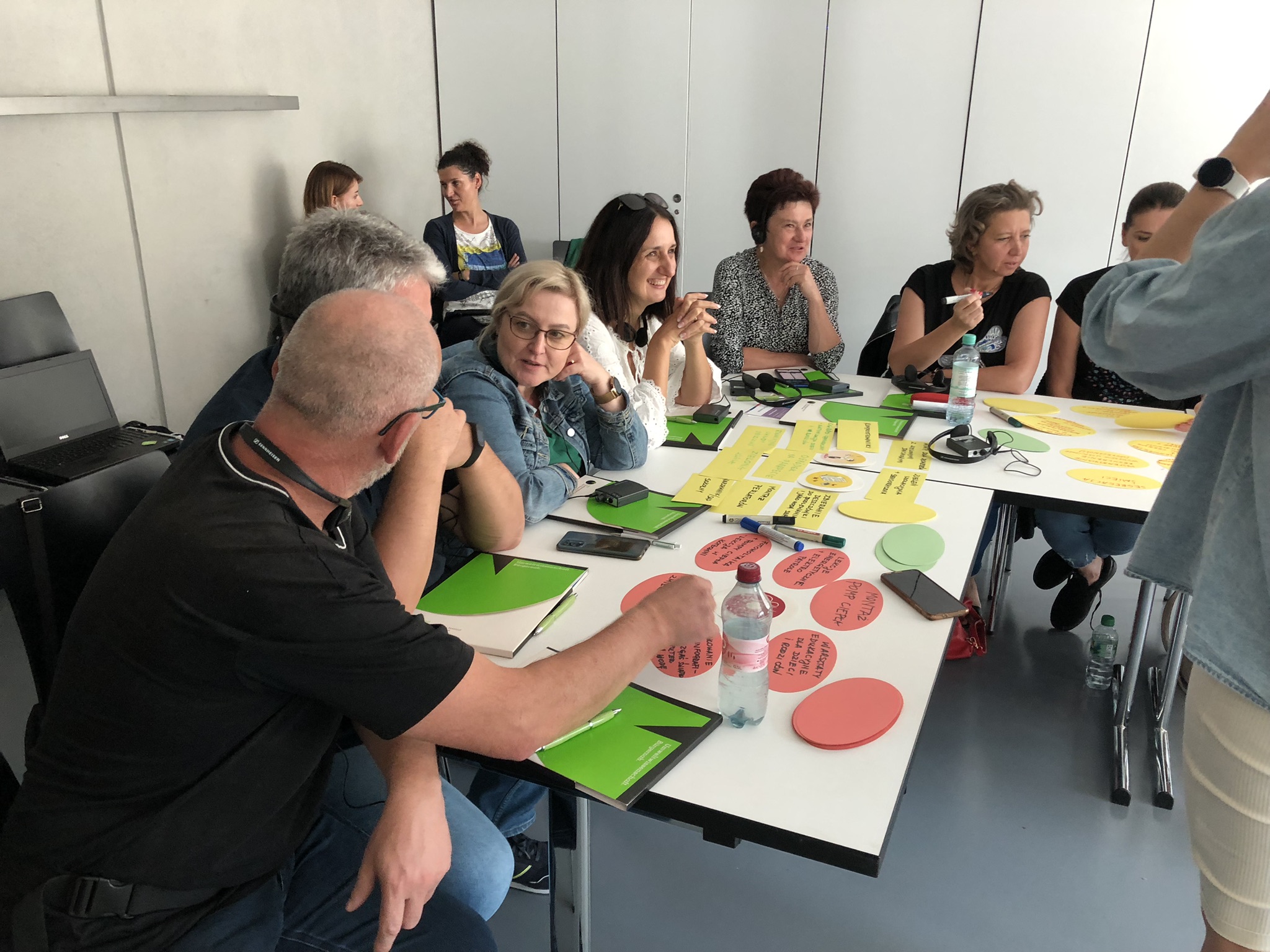Visions 2045 – Study Visits For Cross-Border Exchange And Further Climate Protection Measures
Teachers and representatives of city administrations from a total of six municipalities from Bulgaria, Poland, and Slovenia came to Berlin to plan new climate protection measures at their own schools as well as to exchange experiences.

The delegation visited numerous examples of possible climate actions as part of EUKI project Visions 2045 – Schools as Drivers to Climate Neutrality in Cities. The aim is to increase the implementation of relevant measures based on the participation of pupils.
Schools are major energy consumers in municipalities and cause high greenhouse gas emissions. Despite that, schools play a special role when it comes to early learning and acceptance of climate protection measures. If people learn at a young age how important it is to act in an environmentally friendly way and on how to do this, it increases their awareness of the issue. However, self-efficacy plays an important role here, because learning about the climate crisis can quickly have a paralyzing effect if options and approaches on taking action are not provided. Therefore, the various schools of the project network with one another in order to create synergies and learn from one another.
With this in mind, the participating organizations are calling for more funding and support for schools. Since the adaptation to climate change and the containment of global warming must be promoted in schools. Within the project, climate protection measures are planned and carried out in order to reduce greenhouse gas emissions in schools. We want to promote climate protection in schools in Bulgaria, Germany, Poland and Slovenia and anchor it structurally in everyday school life.
The climate protection measures are based on ideas from the school community, which is why their participation is central. This means that pupils, teachers, the school and facility management, social workers, parents and also representatives of the city administration come together and jointly develop an internal vision for a climate-neutral school with concrete measures on the way there. The concept is already in practice in another pilot project in Berlin called “KlimaVisionen – Paths to climate-neutral schools in Berlin”. The adaptation to new local contexts started through teacher trainings and the study visits to expand the concept and enrich it with the experiences of the participants.
About Fifty teachers from the different countries discussed methods and concepts such as vision workshops with teachers and organizations in Berlin and adapted them to their own school contexts. Some examples: They experienced the Frei Day concept at a primary school. Here, pupils plan and implement projects independently and thus experience problem-based, holistic learning. The groups were inspired by educational game ideas for food appreciation and by the potential of vegan and vegetarian school meals as well as energy-efficient kitchens. Another school explained how it was able to implement effective measures for the water cycle and greening vis-à-vis the district administration and got encouraged to start mini-forests at schools and their neighborhoods.
The study visits and the associated exchange supported the networking between the schools from the different countries. This is very valuable, because climate protection does not simply happen; it thrives on cooperation and joint action. Currently, vision workshops are performed at the partner schools and in 2024 we will be able to report on the students‘ climate actions.
Learn more about EUKI project „Visions 2045 – Schools as Drivers to Climate Neutrality in Cities“ here.
